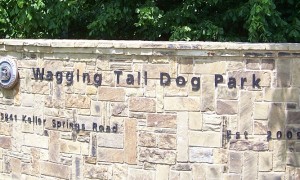One would probably be hard-pressed today to find a home in the Dallas-Fort Worth area built within the past 40 years without central air conditioning. Even older homes, if remodeled, may have had a central heating and cooling system installed. However, it is possible that in some popular areas, there may still be a smattering of properties, from postwar bungalows to three-story brick residences, that have escaped the renovator’s zeal and still exist in near-original condition. Even with no air conditioning or with only window units, they may still be gems simply in need of a makeover.
Should you consider buying a property here in the Metroplex if it has no central air? If the property is in one of the unique areas of old East Dallas, in the trendy M-streets neighborhood just east of Central Expressway, near the up-and-coming Bishop Arts District of Oak Cliff, or in one of the historic areas of Fort Worth, you should most certainly consider it.
Ask Questions and Weigh the Options
It would be wise to get answers at the outset to the following questions, assuming that your plan is to occupy the house, and not to tear it down and build new:
- Are the structure and exterior of the house generally in good condition?
- Is the floor plan acceptable?
- Is there an attic? Is there a crawl space underneath the house?
- Is the price favorable enough for remodelling to be feasible?
- Is the neighborhood attractive?
If your answers are affirmative, then chances are that you will be able to add central air conditioning and possibly also to update the heating system to include cooling—all at a price that your budget will allow. It is common for older homes to have been constructed on a pier-and-beam foundation, which offers the advantage of access beneath the house. Even so, if the house doesn’t have a crawl space or has limited attic space, your HVAC contractor might be able to suggest a solution.
The good news is that recent technological advances in construction—just as with computers and phones—have allowed all systems to become smaller. This includes ductwork, compressors, the furnace, and the fan, saving space and simplifying installation. Newer ducts and vents can be routed between walls and floor or ceiling joists, with only minor impact on existing walls and ceilings.
Potential Problems or Great Possibilities
There are other considerations when purchasing vintage homes. All systems should be inspected thoroughly, and you must consider the potential cost of all necessary updates and repairs before being swept away by the charm of any property without central air conditioning. Consider the fact that electrical service may have to be increased and wiring updated. Insulation may not be sufficient, and windows may well be single-glazed and not energy efficient. In addition, plumbing fixtures, flooring, and appliances may also be outdated.
Despite the possible need for updates and repairs, you might find such bonuses as hardwood floors, built-in bookcases and niches, stained-glass or arched windows, original light fixtures, and other treasures. If you look at a property with a view to its potential rather than a critical glance at its shortcomings, you may very well find yourself embarking on a great adventure.
Luckily, in the Greater Dallas-Fort Worth area, there are many qualified professionals who would be happy to discuss options with you at no obligation. As you embark on your house-hunting mission, keep in mind your primary goal: to find the very best, most suitable choice to call home.
Photo Source: Matthew Rutledge http://www.flickr.com/photos/rutlo/3882406987/sizes/l/in/photolist-6V5mkv-c5PCwu/
[cf]skyword_tracking_tag[/cf]






